The 15 richest self-made women on earth
14. TIE: Lynda Resnick

14. TIE: Marian Ilitch
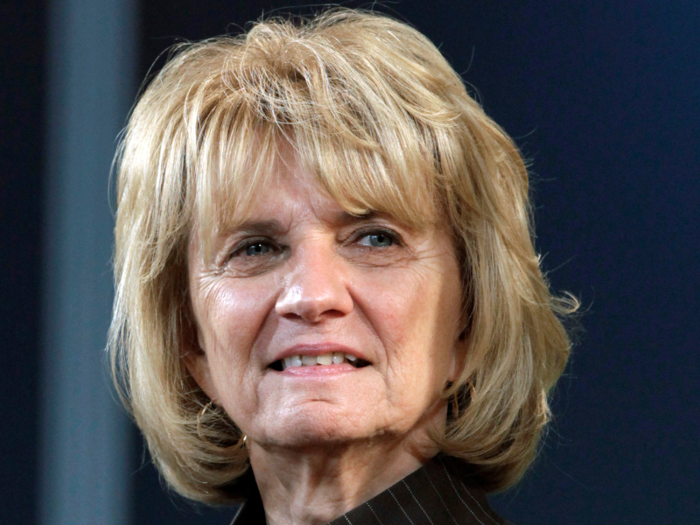
Net worth: $2.4 billion
Country: US
Age: 83
Industry: Diversified
Source of wealth: Little Caesars
Ilitch has been in the food industry since she was a little girl. Starting at age 10, she worked at her father's restaurant in Dearborn, Michigan, where she filled the salt and pepper shakers. In 1959, Ilitch and her husband, Mike, opened the first Little Caesars pizza store, the moniker stemming from Marian's nickname for Mike. In 1962, the couple sold their first franchise for $5,000. Today Little Caesars has more than 4,000 fast-serve pizza restaurants.
Though the Ilitches command one of the largest takeout pizza chains in the US, their overall empire is even larger. Ilitch Holdings consists of 10 companies that specialize in food, sports, and entertainment, including the MLB's Detroit Tigers, the NHL's Detroit Red Wings, and the MotorCity Casino in Detroit. They bought the Red Wings for $8 million in 1982; the franchise is worth $600 million today.
The Ilitches will both be inducted into the International Franchise Association's Hall of Fame this year.
11. TIE: Johnelle Hunt
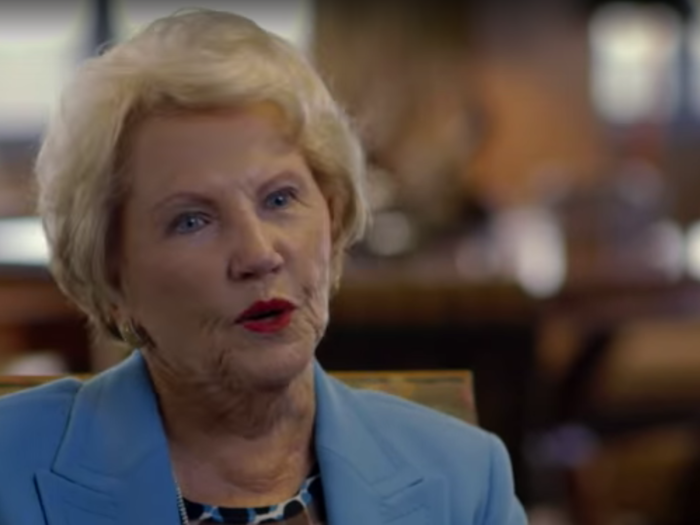
Net worth: $2.5 billion
Country: US
Age: 84
Industry: Logistics
Source of wealth: J.B. Hunt Transport Services
When the J.B. Hunt Company opened in 1962, founded by Hunt's husband, Johnnie, who died in 2006, she started out as a part-time employee, helping get the business off the ground. Hunt quickly became an integral part of the company, moving up to full-time employee and then cofounding the logistics company J.B. Hunt Transport alongside her husband in 1969 with only five tractors and seven trailers.
Thanks to Hunt's entrepreneurial vision, the transportation company grew, eventually integrating J.B. Hunt proper into it. The company went public in 1983, and by 2004 it commanded more than 11,000 trucks and more than 16,000 employees. Today the company is worth $9.5 billion.
In 2001, Hunt cofounded Hunt Ventures, an office and retail development company, where she still serves as chairman. The company tackles large-scale real-estate projects, such as Pinnacle Hills, a 700-acre development that will feature more than 2.5 million square feet of restaurants, retail space, and offices.
11. TIE: Zhang Xin
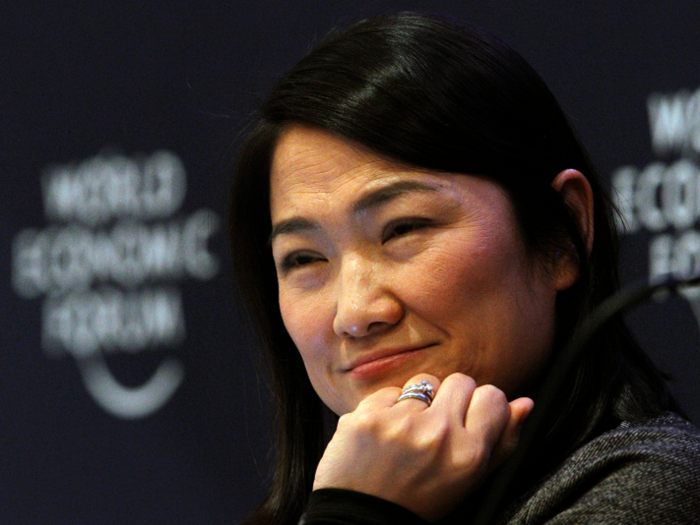
Net worth: $2.5 billion
Country: China
Age: 50
Industry: Real estate
Source of wealth: Soho China
Beginning at age 14, Zhang lived with her mother in Hong Kong, where she spent her days working in a factory and her nights studying. Zhang eventually moved to the UK to study at the University of Sussex, where she earned a bachelor's degree in economics, and at the University of Cambridge, where she earned a master's degree. Throughout the early 1990s, Zhang moved through a succession of jobs as an investment analyst, including a stint at Goldman Sachs in New York.
In 1995, Zhang and her husband founded a real-estate development company in Beijing known today as Soho China, the nation's "largest prime office property developer." The company — which has built hundreds of commercial and residential properties in major Chinese cities — debuted on the Hong Kong Stock Exchange in 2007, raising $1.7 billion from its initial public offering. Zhang, who is the CEO and executive director, has been referred to by Chinese media as "the woman who built Beijing" for her prolific influence on the city's skyline.
Zhang and her husband donated a combined $25 million to Harvard and Yale in 2014, and through the Soho China Foundation they gave $100 million to fund the undergraduate education of Chinese students at top universities around the world.
11. TIE: Judy Faulkner
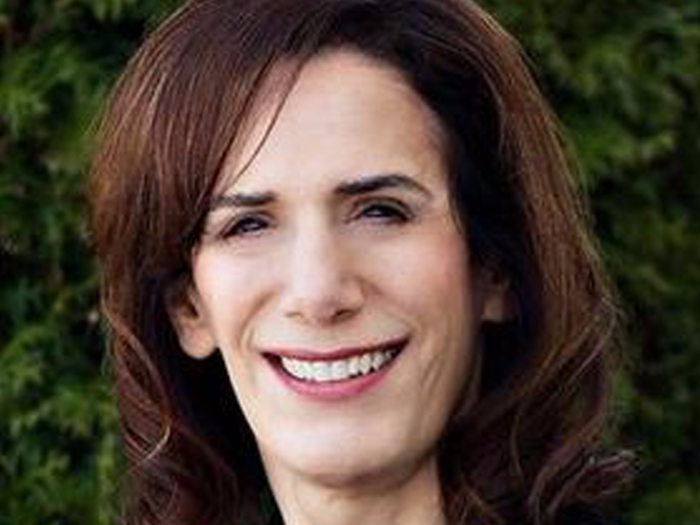
Net worth: $2.5 billion
Country: US
Age: 72
Industry: Healthcare software
Source of wealth: Epic Systems
She's not a household name á la Mark Zuckerberg or Jeff Bezos, but Faulkner, the founder and CEO of Epic Systems, has earned her place as a disruptive tech billionaire just the same. The quiet software programmer built Epic — a private healthcare company that sells medical-records software — from the ground up, launching in 1979 with about $75,000 in capital.
The company is now in a league of its own, with $2 billion in annual sales. Epic's databases contain medical information for nearly half of the US, and its client list reads like a who’s who in healthcare, including Kaiser Permanente, CVS Health, and Johns Hopkins. Though a dominant player in the sector, Epic has also drawn criticism for making its technology incompatible with competing software. Faulkner remains staunch about keeping the company private, arguing that doing so allows Epic to focus on how to best serve its customers instead of the short-term financial picture.
In 2015, Faulkner joined Bill Gates and Warren Buffett's Giving Pledge, promising to donate 99% of her fortune to philanthropy.
10. Giuliana Benetton
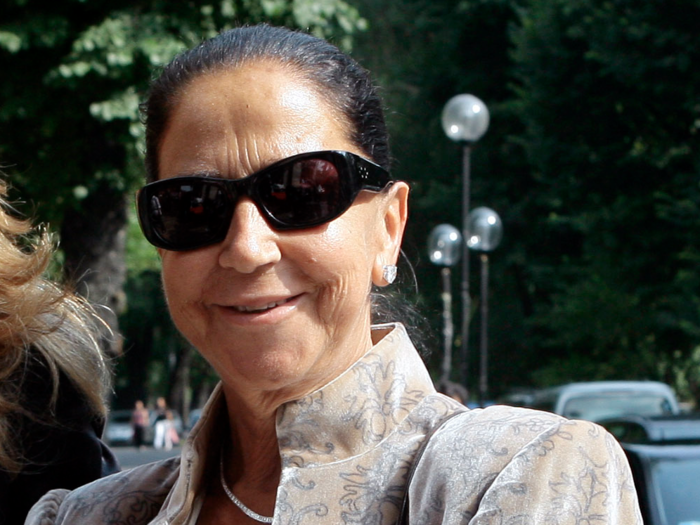
Net worth: $2.7 billion
Country: Italy
Age: 78
Industry: Fashion retail
Source of wealth: Benetton Group
The bright, eccentric clothing produced by the Italian fashion giant Benetton Group dates back to the 1950s, when Benetton would knit sweaters and her brother Luciano would sell them. After acquiring a used sewing machine the duo, along with their brothers Gilberto and Carlo, decided to start selling their merchandise in the Veneto region of Italy. The family company officially launched in 1965, with Giuliana planning the knitwear collections and supervising their product lines as the company's chief designer.
In the past 50 years, Benetton Group — made up of brands like United Colors of Benetton, Sisley, Playlife, and Killer Loop — has grown to more than 5,000 retail stores in more than 120 countries, generating more than $2 billion in sales.
Aside from its bold merchandise, the brand has garnered attention for diverse and sometimes controversial ad campaigns — something it has started to tone down in the past year as it tries to keep pace with H&M and Zara. Its new "Collection of Us" campaign is moving away from shock tactics and leaning more toward diversity and unification.
The family began diversifying its assets beyond clothing in the 1990s, and its holding company Edizione today boasts more than $12 billion in revenue and has a hand in real estate, agriculture, transportation and infrastructure, and the restaurant business.
8. TIE: Wu Yajun
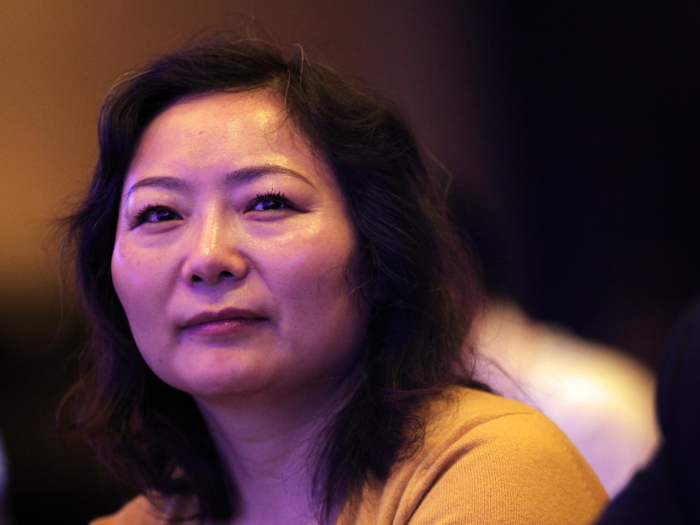
Net worth: $2.8 billion
Country: China
Age: 51
Industry: Real estate
Source of wealth: Longfor Properties
After earning a bachelor's degree in navigation engineering, Wu started a career in 1984 as an engineer at an instrument manufacturer in her hometown in Chongqing. In 1988 she switched to journalism to cover real estate at the China Shirong News Agency.
She left reporting six years later and, after a bad apartment-buying experience, she and her husband started their own homebuilding company that would later become Longfor Properties. By 1997 the two had sold their first residential project, and they expanded Longfor to 13 other cities in China to build residential and office buildings. In 2009, Longfor raised just over $900 million during its initial public offering on the Hong Kong Stock Exchange.
In 2012, Wu divorced her husband, with whom she shared a 72% stake in the company. She ended up with a 43% stake and still serves as chairman of Longfor, which reported revenue of $7.8 billion in 2014.
8. TIE: Oprah Winfrey
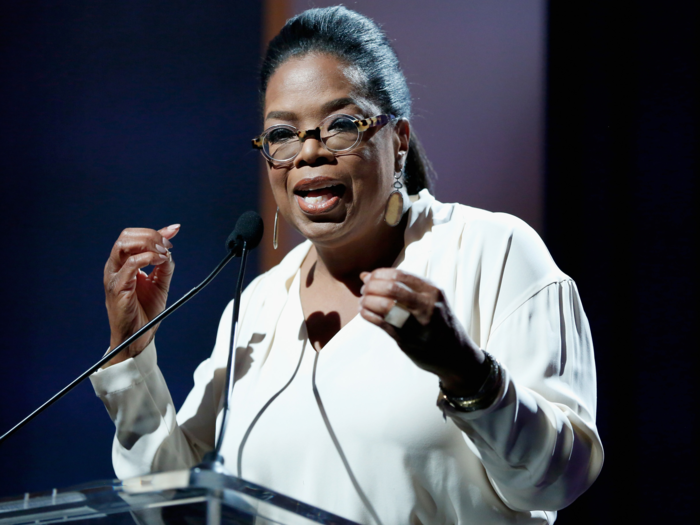
Net worth: $2.8 billion
Country: US
Age: 62
Industry: Media
Source of wealth: Harpo Productions
Born and raised in poverty in Mississippi, Winfrey broke into the media industry as a TV news anchor in Baltimore in the 1970s, moving to Chicago in 1984 to host a morning show that a year later became "The Oprah Winfrey Show." She hit the big time with her acting debut in 1985's "The Color Purple," for which she landed an Oscar nomination.
A year later she started Harpo Studios, where for 25 years she hosted her talk show, which in its peak brought in $300 million a year. Winfrey's Harpo empire would expand to include a book club that turns authors into best-sellers, a women's magazine, and a cable network, Own. It also produces films, including the 2014 critical darling "Selma." Next up for Harpo? Own will start airing scripted TV dramas; "Greenleaf," a show about a Memphis church, will be Winfrey's first acting gig for the network.
In October, Winfrey announced a 10% ownership stake in the weight-loss company Weight Watchers, causing the stock to double in value. Earlier this year she revealed that she had lost 26 pounds on the diet, once again helping Weight Watchers stock soar.
7. Jin Sook Chang
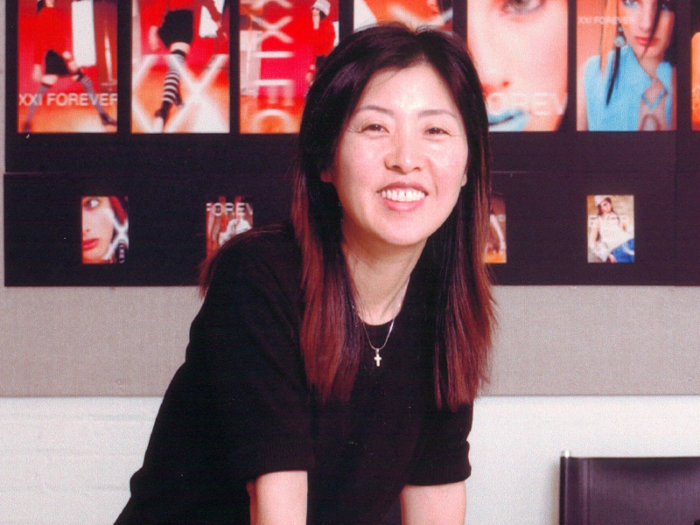
Net worth: $3.1 billion
Country: US
Age: 52
Industry: Fashion retail
Source of wealth: Forever 21
South Korean immigrants Chang and her husband, Don, opened their first "Fashion 21" store in 1984, three years after moving to Los Angeles without jobs and almost nothing to their name. Inspiration to start a clothing company struck Don when he was working at a gas station and realized the best cars were driven by clothing retailers.
The Changs pulled in $700,000 in sales their first year, changing the name to Forever 21 shortly after and aggressively expanding. Today, Forever 21 has more than 600 locations worldwide and generates $4.4 billion in sales. Chang is the chief merchandising officer of the family business — Don serves as CEO, and their daughters, Esther and Linda, hold the titles of creative director and head of marketing.
It hasn't always been smooth sailing for the retail giant. Along with past issues with labor violations, the company has reportedly been sued more than 50 times for copyright infringement, and, most recently, it decided to pull a men's shirt from its shelves that critics deemed offensive and "suggestive of rape."
6. Doris Fisher
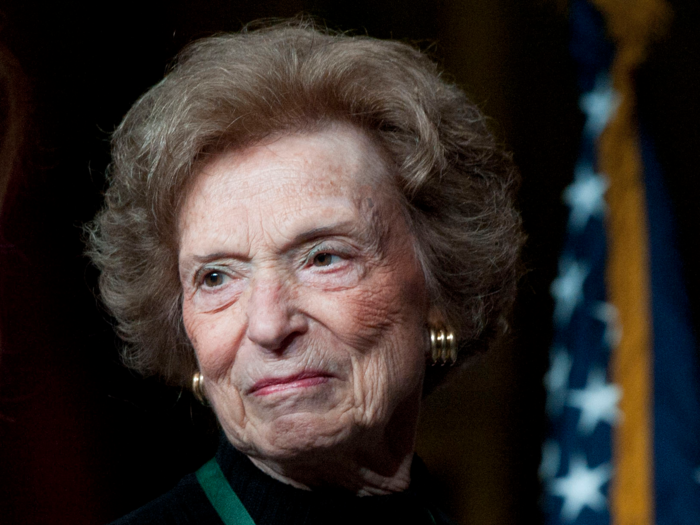
Net worth: $3.2 billion
Country: US
Age: 84
Industry: Fashion retail
Source of wealth: Gap
Back in the 1960s, Fisher's husband, Donald, couldn't find jeans that fit anywhere, so the couple decided to break into the denim business for themselves. They opened the first The Gap store — which sold only jeans and music — in 1969 on San Francisco's Ocean Avenue, named for the "generation gap" they aimed to fill. The brand originally sold Levi's, but the Fishers soon produced their own line of jeans, followed by T-shirts, sweaters, and other clothing staples.
The Gap grew rapidly, going public in 1976 and continuing to expand across the US and internationally. Along the way, the Fishers dropped "The" from Gap's name and picked up several other brands, including the 1983 acquisition of Banana Republic, then a tiny catalog clothing business, and the launch of the spin-off store Old Navy in 1994. Donald Fisher died in 2009, and Gap has struggled in recent years to keep up with millennials' tastes. But the company remains a retailing behemoth with $15.8 billion in sales, more than 3,700 stores, and 150,000 employees.
Now retired from fashion, Fisher is an avid art collector. A portion of her 1,100-piece collection, which includes works from Roy Lichtenstein, Agnes Martin, and Andy Warhol, sits on display at San Francisco's Museum of Modern Art.
5. Elizabeth Holmes
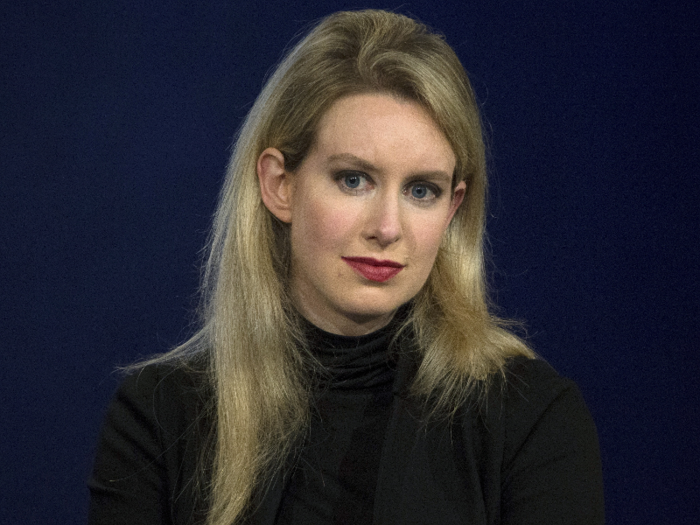
Net worth: $4.5 billion
Country: US
Age: 32
Industry: Healthcare
Source of wealth: Theranos
In 2003, when Elizabeth Holmes was 19, she dropped out of Stanford to found Theranos with the vision of a pain-free, needle-free blood-testing company that reduced costs and headaches for patients. The Silicon Valley-based startup remained in stealth mode for its first 10 years of operation, but it now offers more than 240 tests direct to consumer that can detect a range of medical issues from high cholesterol to cancer. The company's valuation was close to $10 billion last fall; she's the youngest self-made female billionaire in the world.
But Holmes and Theranos have become embattled in the past year, and the value of the company has likely dipped from its peak. They faced harsh criticisms in October for reports of dodgy business practices that question the accuracy of the company's blood tests — Theranos' finger-prick technology was being used for only a small number of tests, damaging the company's reputation. She waved off criticism as "grounded in baseless assertions by inexperienced and disgruntled former employees and industry incumbents." Then in early 2016, the Centers for Medicare and Medicaid Services revealed that during a routine inspection it found some of Theranos' practices to "pose immediate jeopardy to patient health and safety." Theranos submitted a plan to inspectors in February to correct the issues.
In 2015, Holmes helped pass a law in Arizona that allows patients to obtain lab tests without first consulting a doctor. But it is actions like these — pushing its tests directly to consumers, eliminating the need for physicians but also potentially risking patient health — that some suggest could be Holmes' biggest mistake.
4. Pollyanna Chu
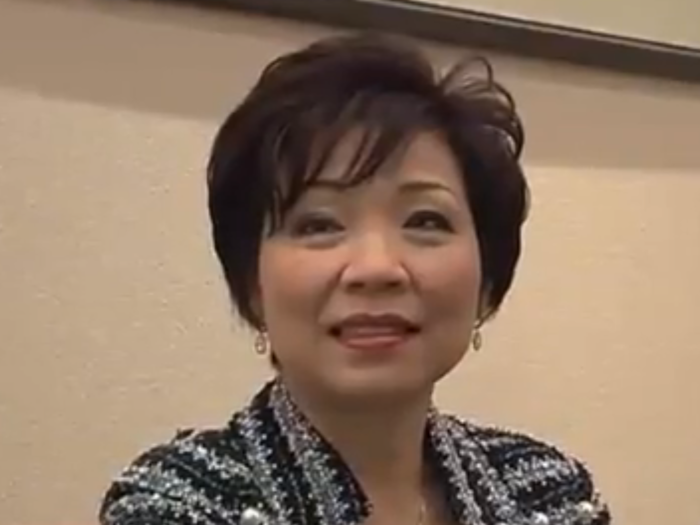
Net worth: $4.9 billion
Country: Hong Kong
Age: 58
Industry: Finance
Source of wealth: Kingston Financial Group
Chu grew up in Hong Kong, but as a teenager she moved with her father to San Francisco, where she attended Golden Gate University in the late 1970s. Not long after college, Chu and her husband, Nicholas, broke into the California real-estate investment business. In 1992 they returned to Hong Kong at the urging of Chu's father, who counseled them to take advantage of the country's thriving market.
In 1993 the couple founded Kingston Financial Group — named after their son Kingston — despite neither of them knowing much about finance. They quickly caught on and focused on growing the business, eventually finding a niche in initial-public-offering distribution and mergers and acquisitions. By 2010, Chu had helped elevate Kingston to a top-five firm for mergers and acquisitions. The next year the couple incorporated Kingston into Golden Resorts, the hotel company founded by her father. The company has continued to grow, posting profits of $163 million in 2015, up 64% from the $99 million it earned in 2014.
Kingston, their only child, joined in the family business as Kingston Financial Group's executive director in 2015.
3. Chan Laiwa
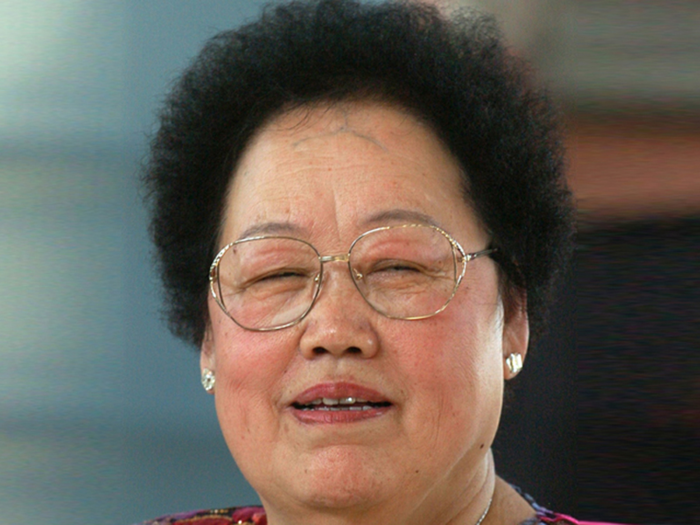
Net worth: $5.2 billion
Country: China
Age: 74
Industry: Real estate
Source of wealth: Fu Wah International
Chan is a descendant of the Manchu (Qing) dynasty that ruled China for nearly 300 years into the early 20th century. Chan grew up in the 1940s and 1950s, during the Japanese invasion of China, and her family was severely impoverished, forcing her to drop out of high school. Still, she managed to raise enough money to start a furniture-repair business in 1976.
The business grew steadily, leading her to Hong Kong, where in the early 1980s she purchased and flipped a dozen villas, making her first fortune. Upon returning to Beijing in 1988, Chan founded Fu Wah International, a real-estate investment company that today is responsible for the construction and operation of luxury hotels, apartments, office buildings, and shopping malls in China, Australia, and New Zealand.
One of Fu Wah International's best-known properties is the China Red Sandalwood Museum. It started as a $24 million investment by Chan in 1999 to salvage the red sandalwood furniture she cherished as a child — her grandmother had buried the family's collection to preserve it during the Cultural Revolution. It's now the world's largest museum for the research and collection of red sandalwood furniture and sculpture.
Chan remains chairman of Fu Wah International, while her two daughters serve as directors and her son is the company's president. Fu Wah is heavily involved in charity, donating tens of millions of dollars to disaster relief and aid efforts.
2. Diane Hendricks
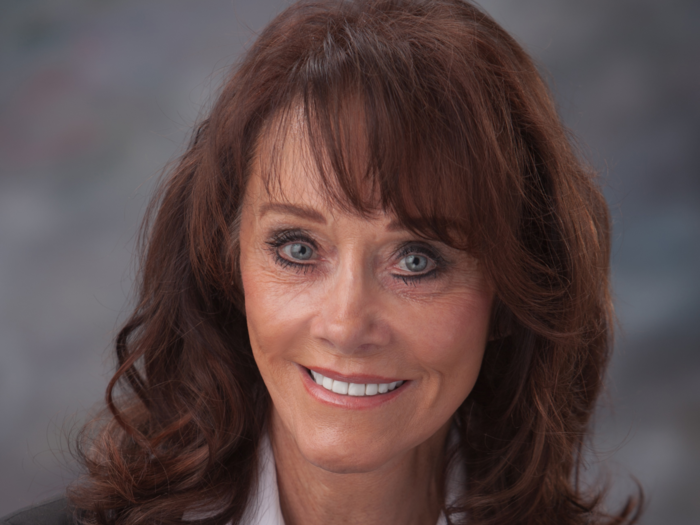
Net worth: $5.6 billion
Country: US
Age: 69
Industry: Building materials
Source of wealth: ABC Supply Co.
Hendricks grew up the daughter of Wisconsin dairy farmers. Three years after she met her late husband Kenneth, the couple had bought and remodeled more than 100 homes in the Beloit, Wisconsin, area with the ultimate goal of getting into wholesale roofing distribution. In 1982, Hendricks and her husband opened ABC Supply, which quickly expanded and began selling an array of building materials across the US. The company is now considered the largest wholesale distributor of roofing in the country, with more than 600 locations and over $6.5 billion in sales.
Hendricks still serves as chairman of the company in addition to running Hendricks Holding Company, her private investment vehicle. Hendricks Holding has a large real estate portfolio and is invested in 22 companies in industries ranging from manufacturing to pharmaceutical research.
When she’s not tackling the world of building supplies, Hendricks, a mother of seven and grandmother to 17, makes it a point to give back to the Beloit community, donating millions to local organizations and serving as a trustee for Beloit College.
1. Zhou Qunfei
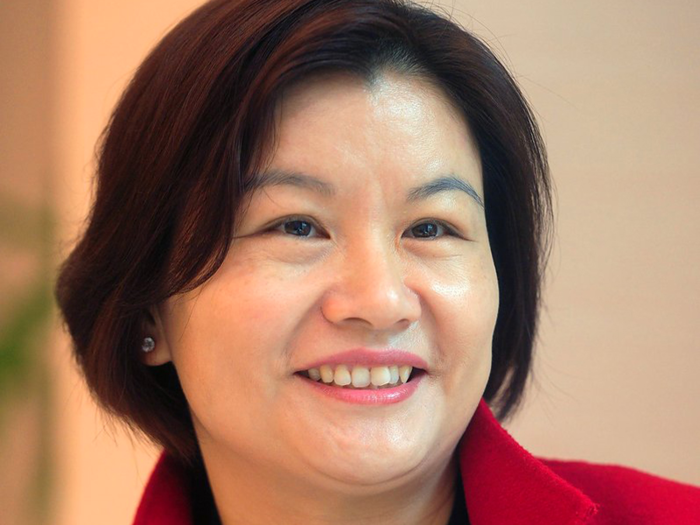
Net worth: $6 billion
Country: China
Age: 46
Industry: Manufacturing
Source of wealth: Lens Technology
Born in a small village in the Hunan province of China, Zhou grew up poor. At 16 she got a job working in a watch factory, which meant long hours under harsh conditions. She quickly rose up the ranks at the factory, eventually saving up $3,000 — enough to open her own competing lens workshop in 1993 next door to her previous employer.
In 2003, Motorola asked Zhou to replace the plastic screens it had been using for cellphones with a sturdier glass version. She accepted the offer and soon had several smartphone companies knocking on her door, including Apple, which needed a keyboard touch screen for its first iPhone in 2007. The touch-screen model took off, forcing Zhou to expand rapidly and propelling her to billionaire status.
Today, Lens Technology's largest clients still include Apple and Samsung. The company went public in 2015 and now has a market capitalization of $7 billion. Zhou's success hasn't slowed her down; she remains hands-on at Lens and has been known to test out factory equipment herself.
Popular Right Now
Popular Keywords
Advertisement